Correction appended, July 25
President Barack Obama’s trip to Kenya marks the first time an American leader has ever visited the East African nation, and residents of the capital, Nairobi, put up banners, billboards and flags to celebrate the occasion. Over at PAWA254, an artists’ collective that prides itself on speaking truth to power, organizers prepared a different kind of welcome: a cartoon retrospective spanning Obama’s association with Kenya, from his visit as a senator in 2006 to his return this month.
“The idea was to explain how perceptions of Obama have changed since he was last here in 2006,” says award-winning Kenyan political cartoonist Patrick Gathara, who launched the exhibit just as Obama’s plane was touching down. (Obama first visited Kenya in 1988, but cartoonists back then weren’t paying attention to a gawky teenager’s pilgrimage to his father’s birthplace in a rural village.)
When Obama was elected President in 2008, Kenya declared a national holiday. But Gathara says that Obama’s image, charted through the prism of Kenya’s editorial cartoons, has suffered through the years from a U.S.-born American politician returning to his father’s birthplace to a historic presidential hopeful to the ultimate symbol of American might, for both good and bad. “In 2006 he was welcomed as Kenyan coming from abroad, but now people see him as an American President, and that carries a lot of baggage,” says Gathara. Relations between the U.S. and Kenya hit a low point over the 2013 Kenyan presidential elections, when Obama’s State Department was perceived to be critical of Kenya’s current president, Uhuru Kenyatta. Johnnie Carson, then Assistant Secretary of State for African Affairs, said that the United States did not have a preferred candidate in the election, but that “choices have consequences,” a comment that was widely taken as a slur against Kenyatta, who came to power in 2007 through a disputed, and violent, election.
Though the United States is not a signatory to the International Criminal Court (ICC), Kenyans believe that the U.S., and Obama in particular, backed a 2012 indictment against Kenyatta alleging that he’d orchestrated the 2007 violence. The charges were withdrawn in December 2014 for lack of sufficient evidence.
The ICC theme features frequently in the cartoon exhibition. So too do pointed commentaries on U.S. calls for ending discrimination against homosexuals in Africa, a touchy subject in a country, that like most of Africa, has a hard time accepting homosexuality.
See How Obama Is Depicted in Africa’s Political Cartoons
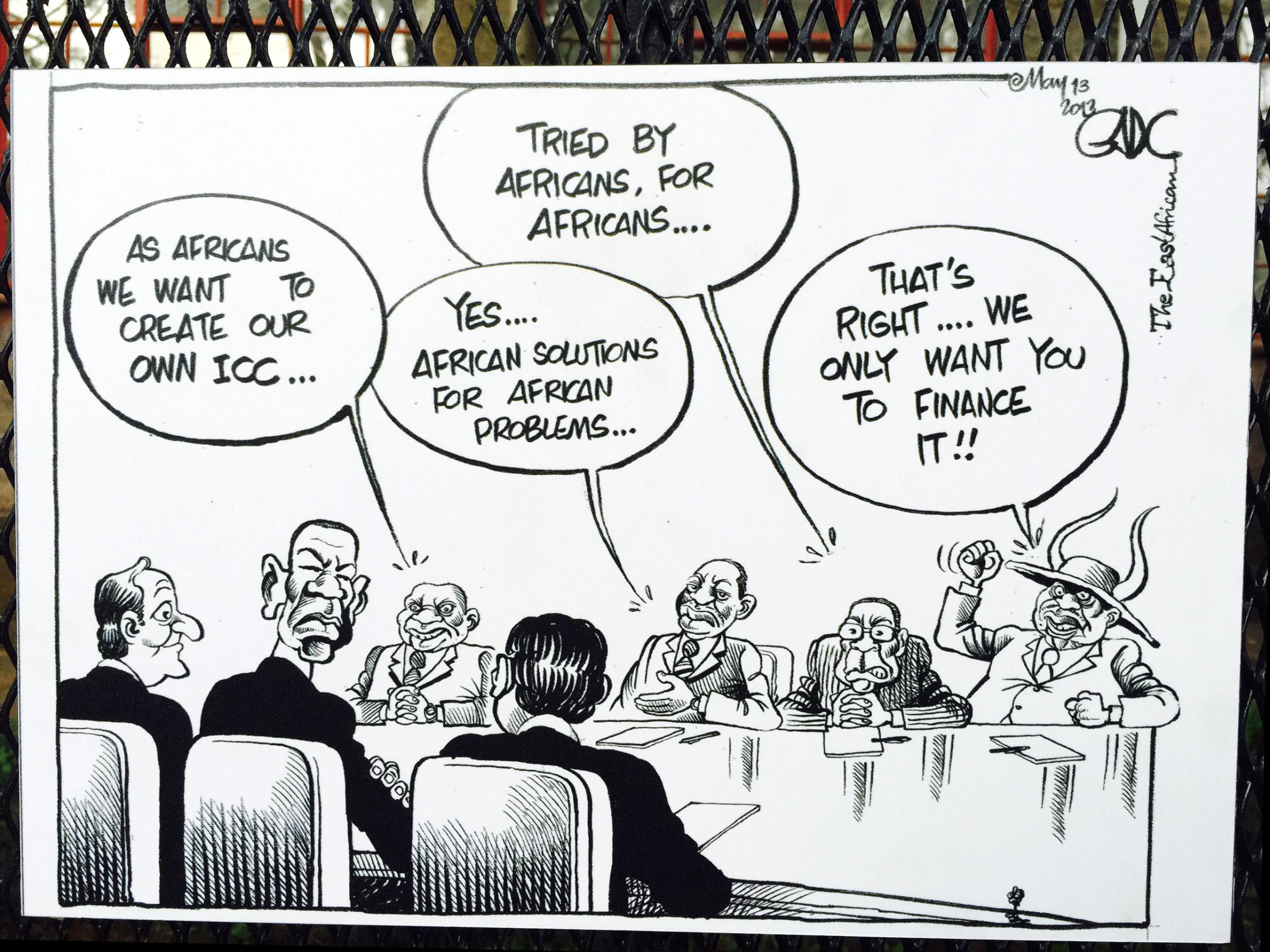
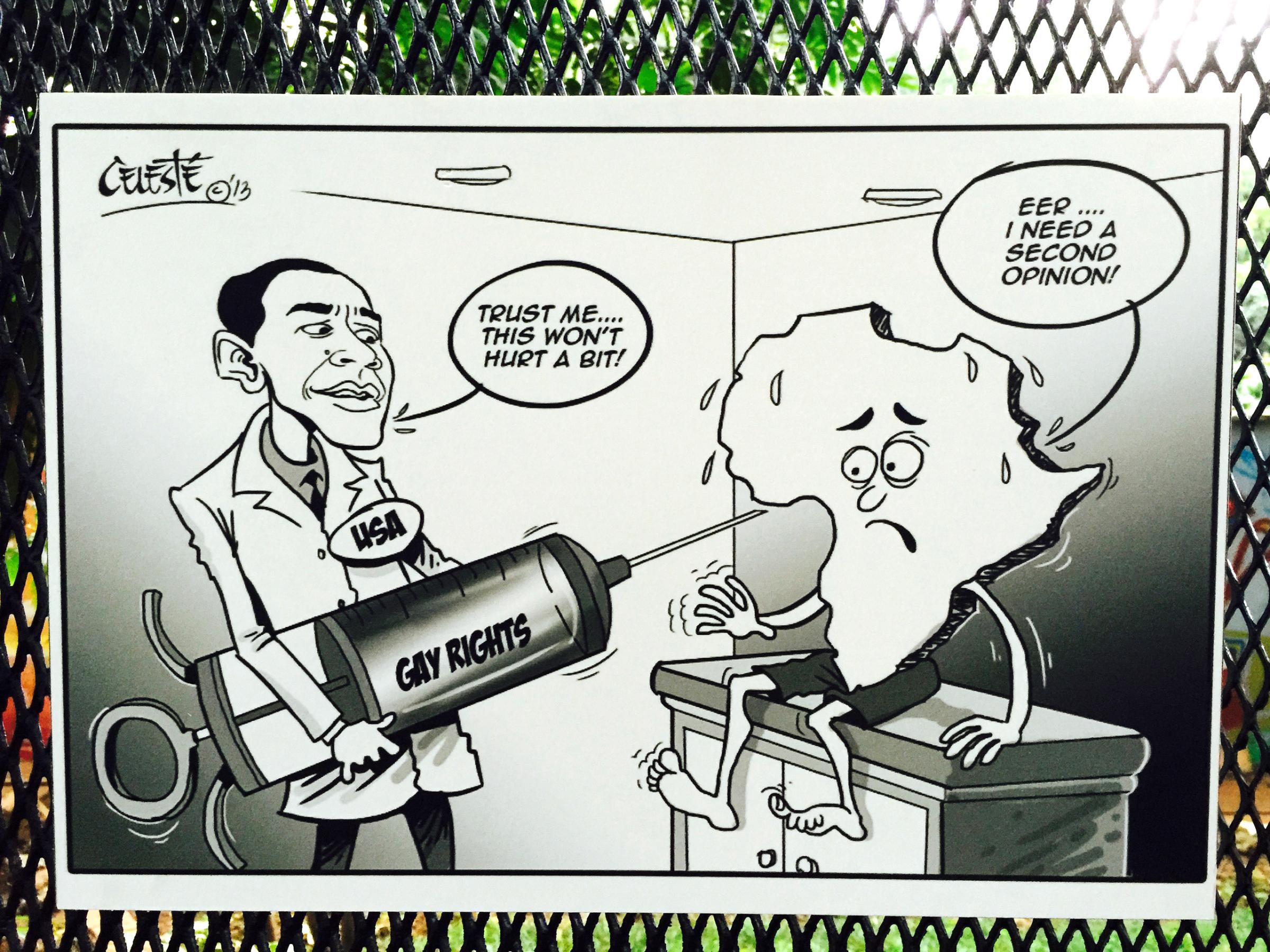
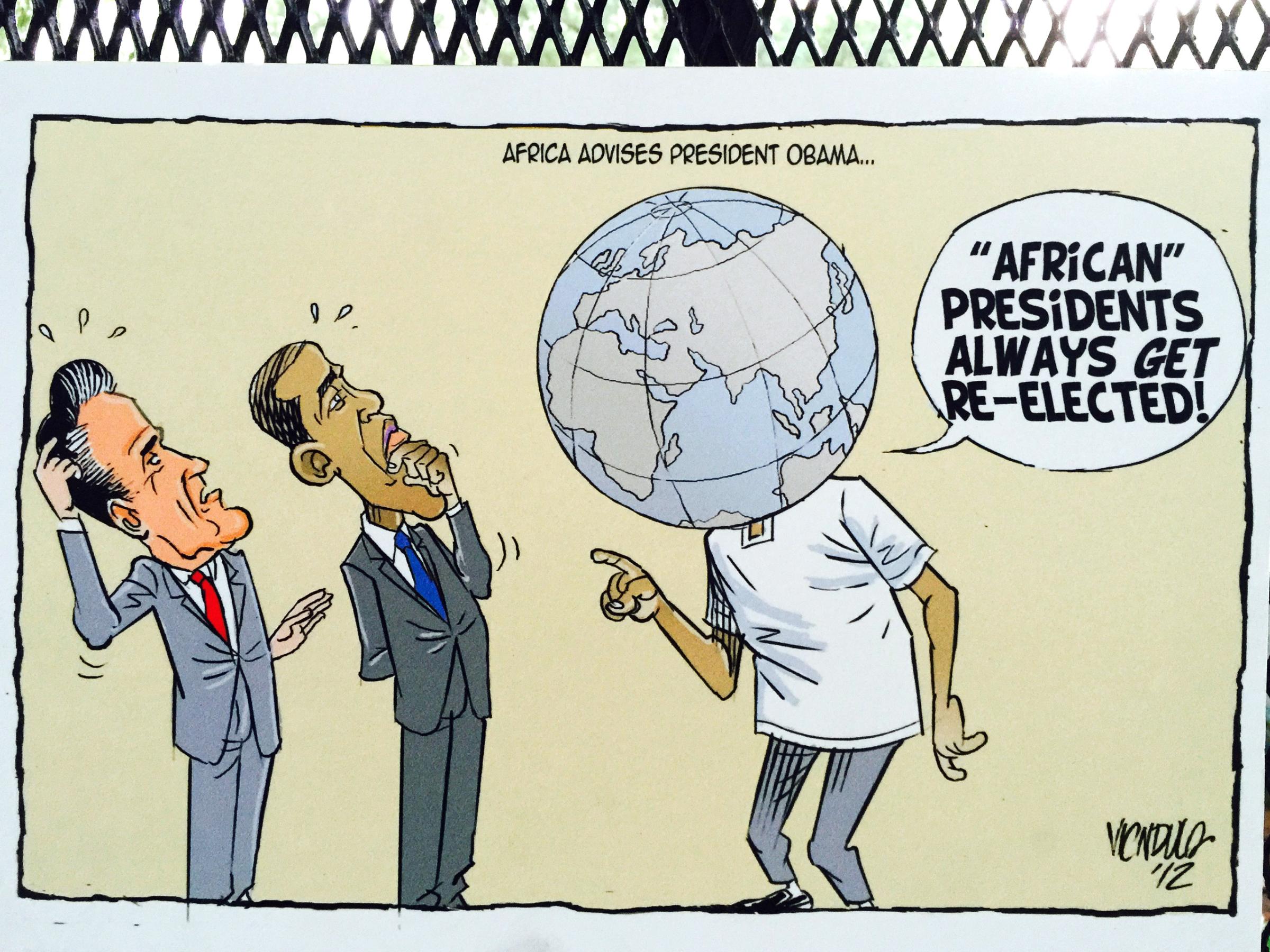
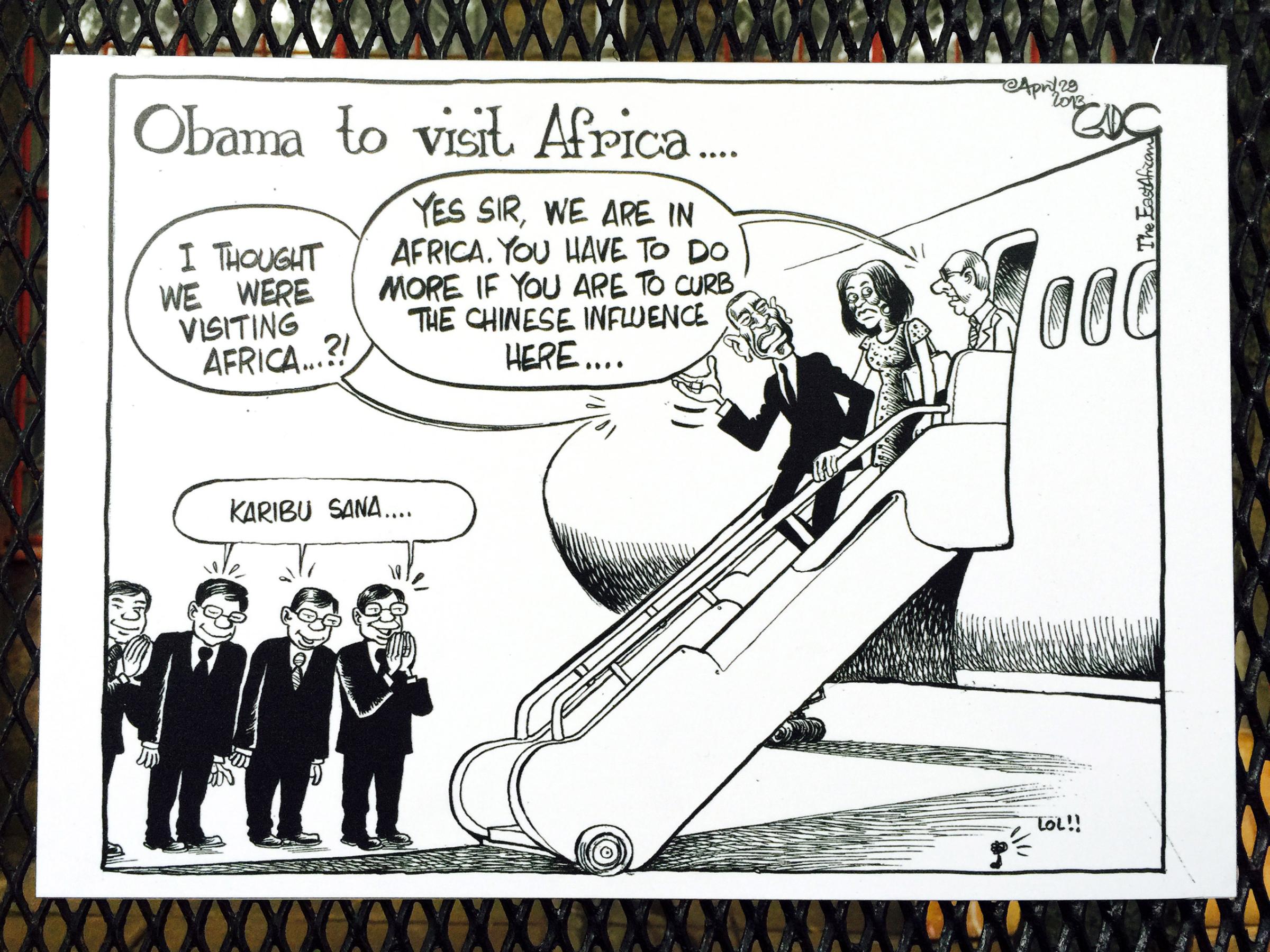
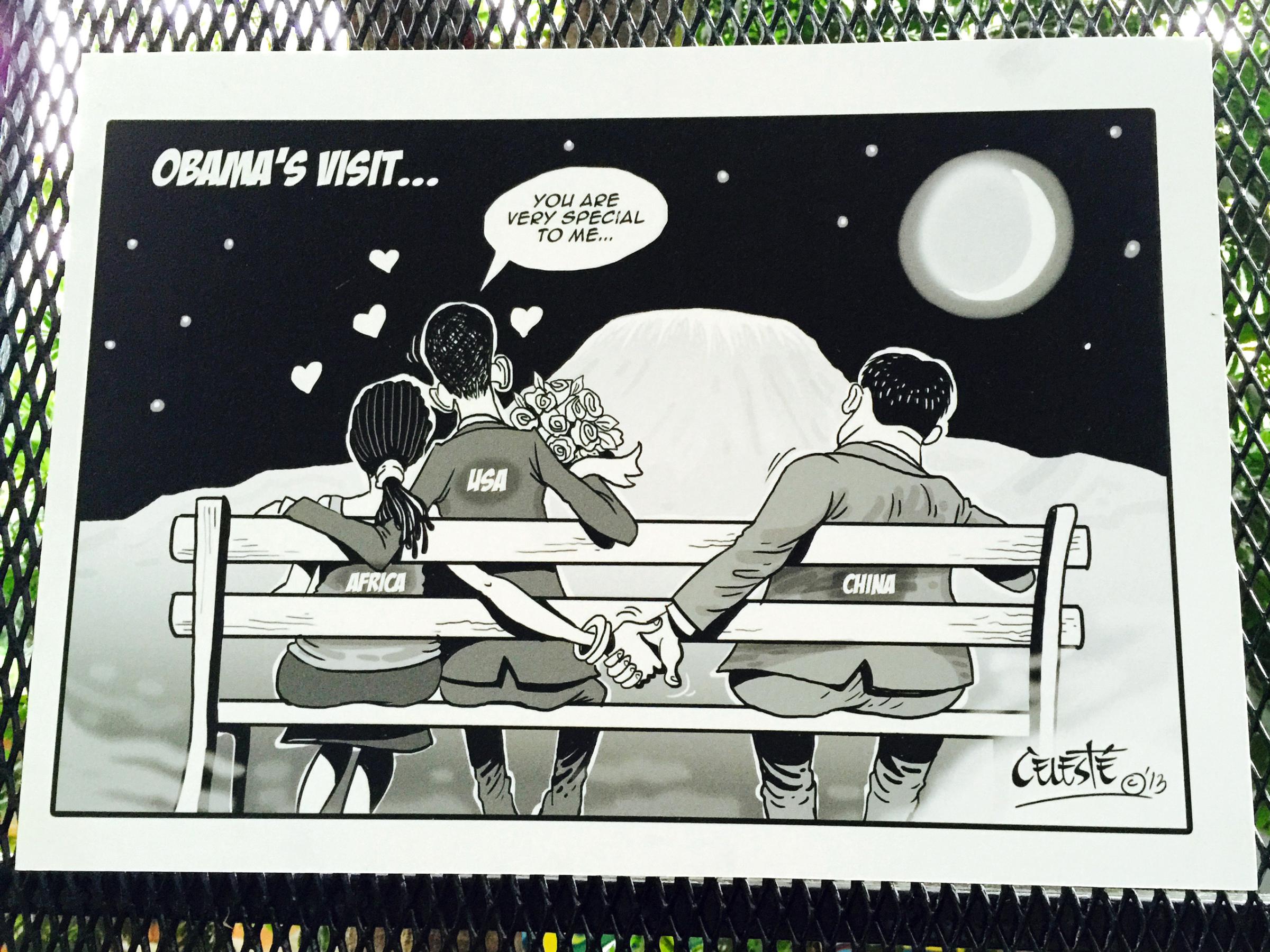
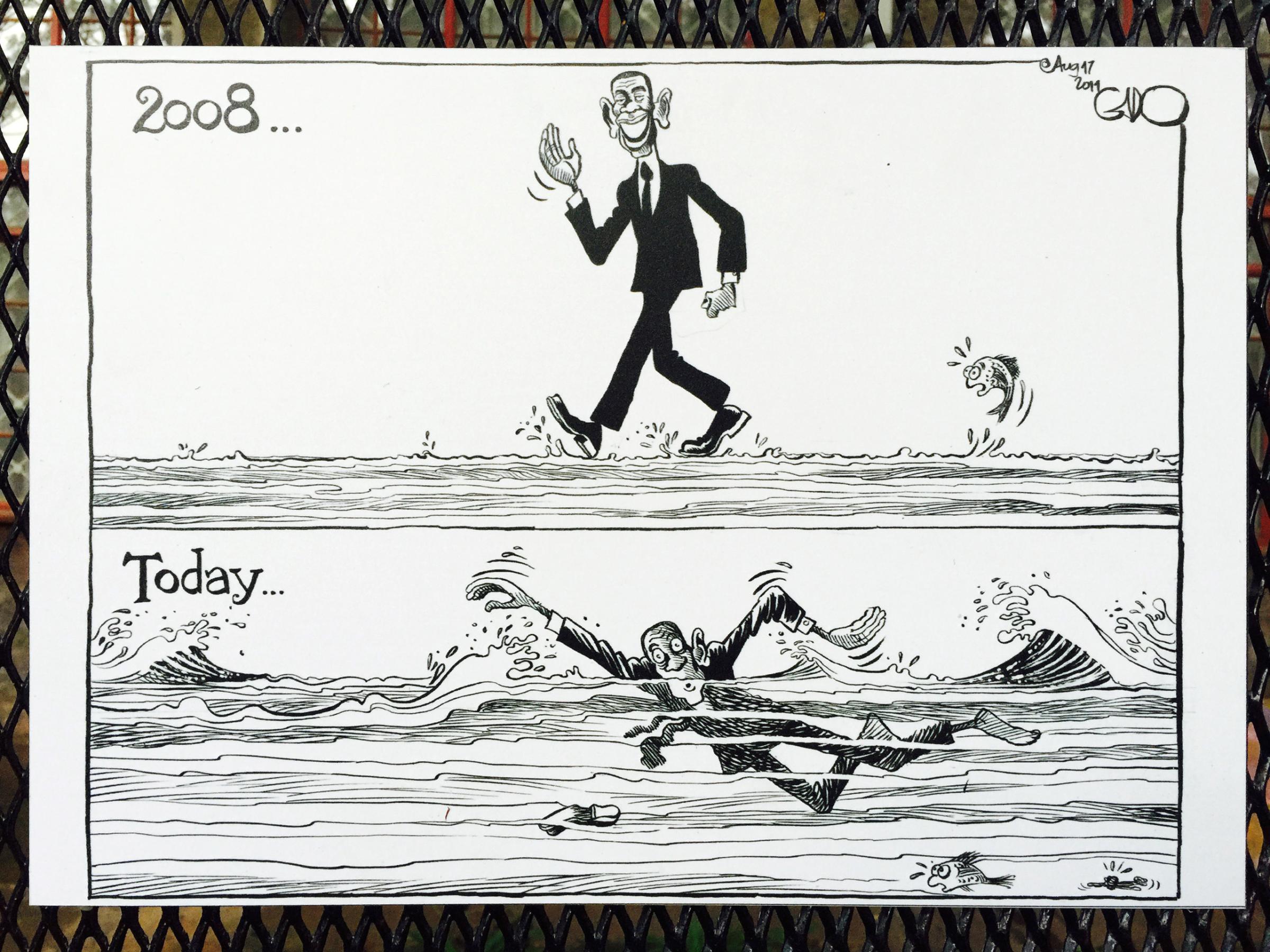
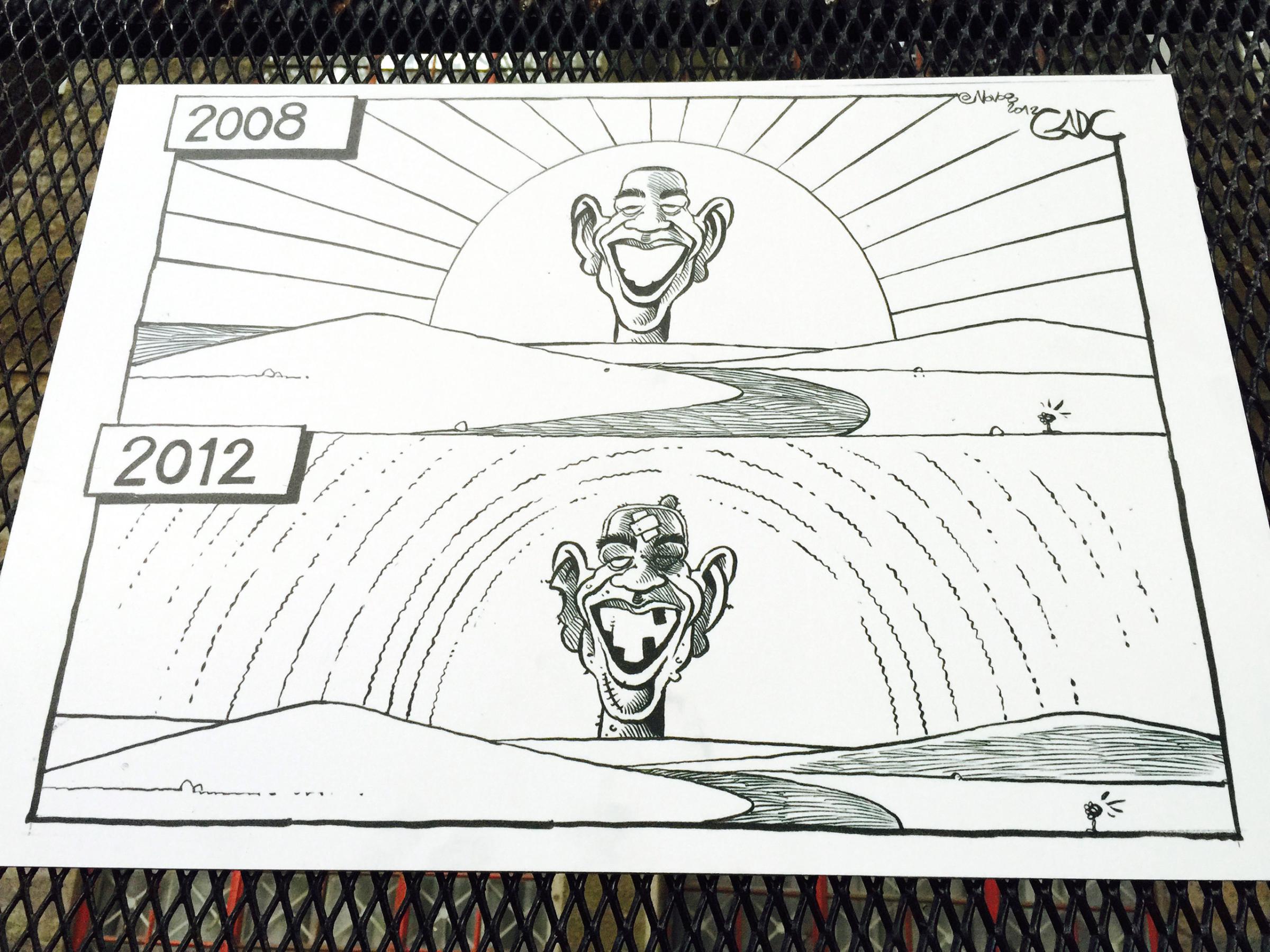
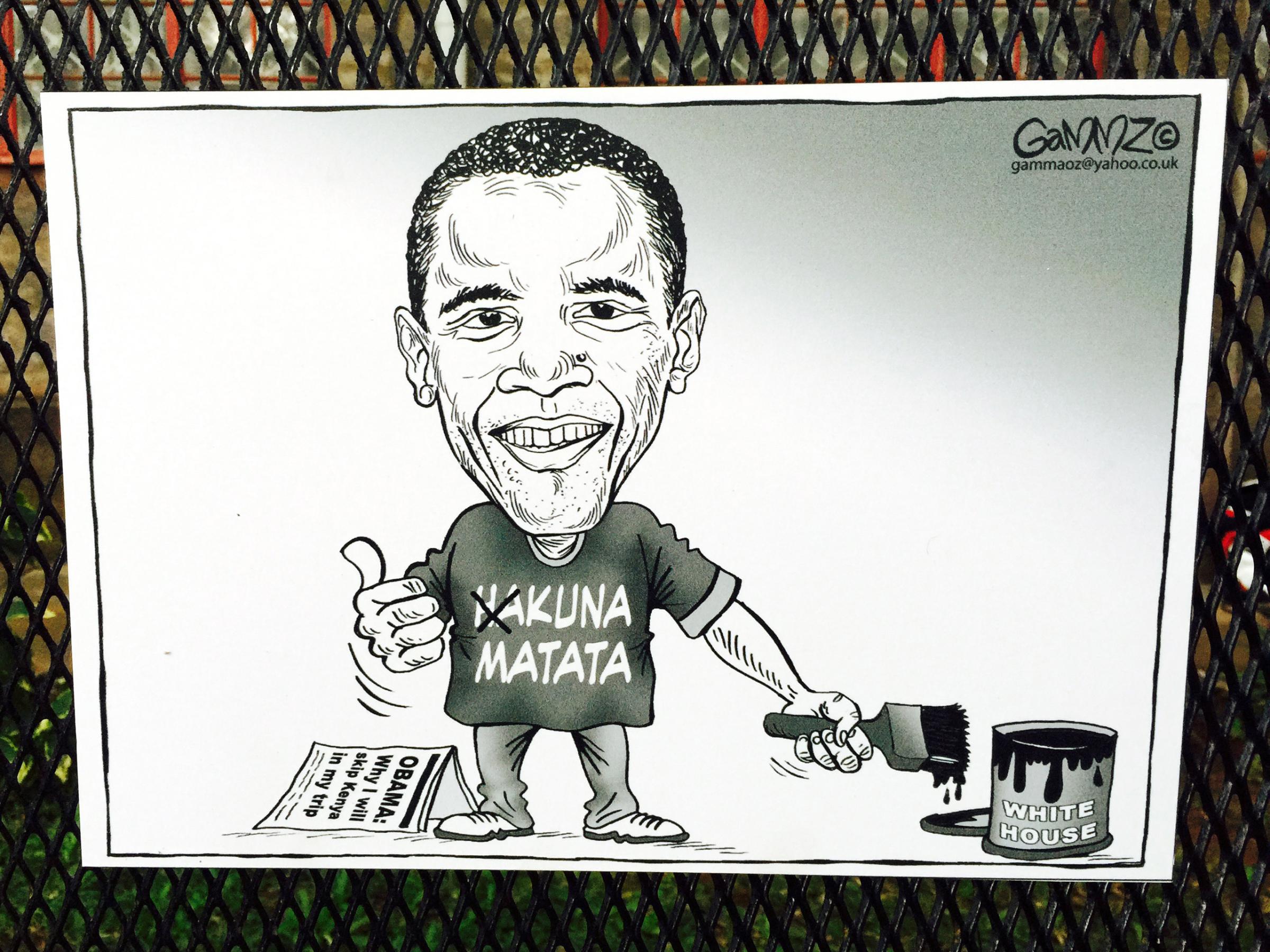
Gathara says he personally believes in equal rights for Kenyan homosexuals, but adds that it has been a difficult subject to tackle for cartoonists—especially since there is a knee jerk resistance to American lecturing among Africans, no matter how justified the lesson. Cartoonists, he says, too often simply reflect public opinion. “I think it is time that we as cartoonists stop pandering to our audience and challenge them instead, by looking at how we deal with our own issues and our own problems.”
Other cartoons in the exhibit speak to a more universal theme: that of a President who has taken a beating during his time in power. Another theme is waning American influence, as Kenya, tired of American lectures, courts China, which has invested more than $5 billion in the East African nation since 2011.
Even though Kenyans are tried of being told how to act by the U.S., some, like Gathara, hope that Obama’s visit will bring more than just improved relations, goodwill and a few nice speeches. Kenya, he says, has a lot of problems, from insecurity to terrorism and corruption—and the country’s leadership doesn’t seem to be doing much to address those issues. “Ours is a government that responds to pressure, not nice words. So I hope behind closed doors, Obama is telling our leaders to stop running this country like a game and to start doing their jobs, so we, as Kenyans, can keep doing ours.” There is a cartoon somewhere in that, he muses. He is just waiting to see how the Obama visit goes before putting it in pictures.
Correction: The original story misstated the amount of Chinese investment in Kenya since 2011. It is more than $5 billion.
More Must-Reads from TIME
- Caitlin Clark Is TIME's 2024 Athlete of the Year
- Where Trump 2.0 Will Differ From 1.0
- Is Intermittent Fasting Good or Bad for You?
- The 100 Must-Read Books of 2024
- Column: If Optimism Feels Ridiculous Now, Try Hope
- The Future of Climate Action Is Trade Policy
- FX’s Say Nothing Is the Must-Watch Political Thriller of 2024
- Merle Bombardieri Is Helping People Make the Baby Decision
Contact us at letters@time.com